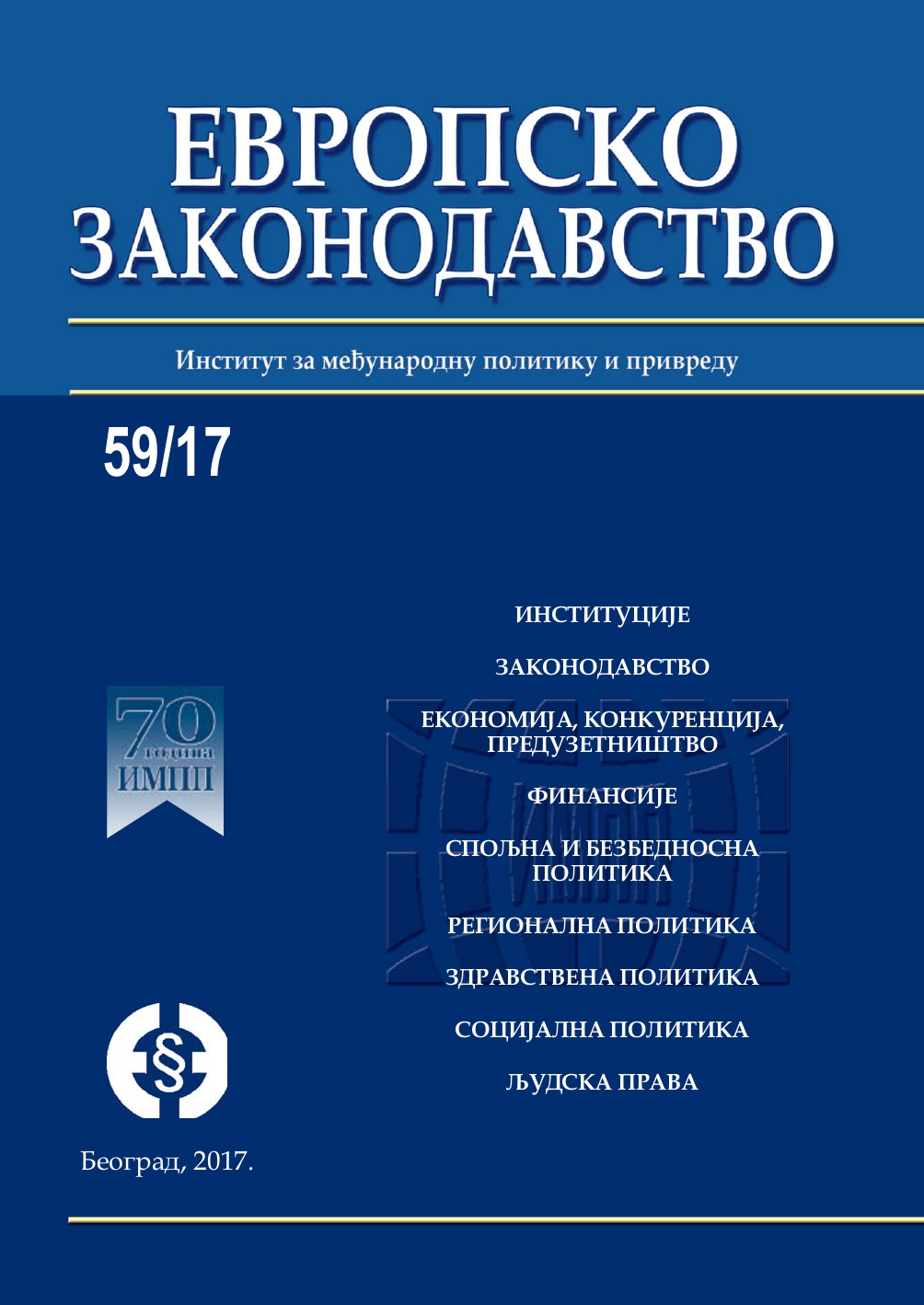Директиве о сигурности људске крви у Европској унији
Directives on the safety of human blood in the European Union
Author(s): Katica TomićSubject(s): EU-Legislation
Published by: Институт за међународну политику и привреду
Keywords: Directive 2002/98/EC;blood transfusion;safe blood and blood products;blood donors
Summary/Abstract: Blood transfusion in the EU is of a general national interest. The continuous, efficient and timely supply of the safe blood and the blood products to medical institutions and patients is an important prerequisite for the successful functioning of any health system. The European Blood Safety Directives pose a challenge to all blood establishments and hospital blood banks and the main objective of these Blood Safety Directives is to provide the same high standards of blood quality and safety for all patients throughout the EC and the candidate countries like the Republic Serbia. The 2002/98/EC and its subsequent Directives for the first time managed to create an overarching legal framework for transfusion procedures. These directives consist of a number of standard definitions as well as detailed standard operating procedures, and yet leave room for interpretation and different practices between the EU member states. Transposing the Directive (2002/98/CE) into the national legislation of the EU Member States represents the basis for an equal minimal safe blood transfusion and a demanding job for each of the EU countries. Moreover, member states are to be monitored regarding their progress on their compliance with the directives, including the inspection and control measures by the national authorities. In order to do this, the candidate country, the Republic Serbia will need to change and supplement the legislation adopted in 2009. Published report on the progress of transposition of the Blood Safety Directives into national legislation reveals different standards, suggesting a lack of uniformity of safety and quality requirements. Furthermore, due to the technological progress since the adoption of directives, some of them (e.g. definitions, provisions on the safety of blood donors and patients, the inspection framework) became outdated. It is currently creating practical medical problems. This might undermine public confidence in the quality of blood products and the health protection of donors. The proposal for revising the Blood transfusion law in Serbia would help in optimising patient safety, donor healthcare and the efficiency of the healthcare systems dedicated to transfusion medicine. The Republic Serbia is actively preparing the conditions for the transposition of blood directive that will be achieved up to 2019, aiming high standards for national blood establishments and identifying a quality system for blood establishments to ensure comparable management of blood safety throughout Europe.
Journal: Европско законодавство
- Issue Year: 2017
- Issue No: 59
- Page Range: 170-190
- Page Count: 21
- Language: Serbian

